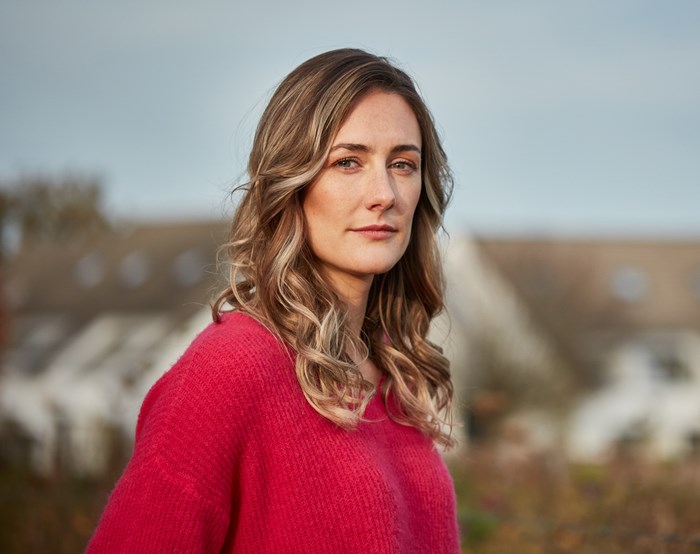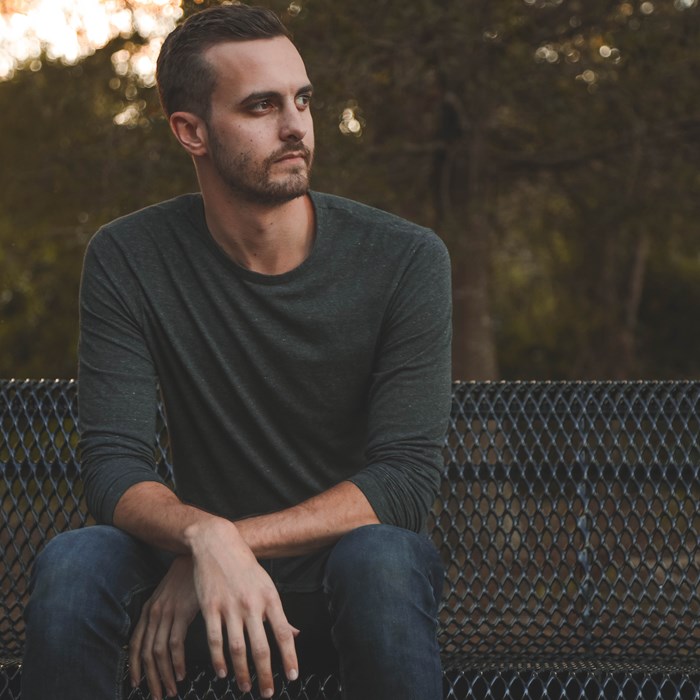Trauma isn't just hard on yourself: it also has a big impact on your family and friends. Some military personnel know all about that. As do police officers and victims of sexual assault and accidents, for example. "Fortunately, PTSD (post-traumatic stress disorder) is often easily and quickly treatable," says U-center psychologist Yaël Smeets (30).
'What happened? What did it look like? Did you kill someone, too?' Family and friends - logically - often ask a lot of questions. "But then you answer and the other person has half a panic attack? Then you think twice next time," says Yaël. Since 2016, he has been working as a healthcare psychologist and EMDR Europe practitioner (trauma therapist) at U-center. In the international clinic, for example, he regularly treats traumatized military personnel. They also find it difficult to talk about their trauma. But walking around with it disrupts your whole life and that of the people who are important to you. What is helpful in this situation?
"Attention and understanding always help," says Yaël. That's why something like Dutch Veterans Day on June 25, 2022. With activities throughout the country, the Netherlands thanks more than 100,000 military personnel who have been deployed for peace. Did someone come home with PTSD? Then, however, more is needed.

Post-traumatic stress disorder - this is it
With PTSD, you don't just go into shock after one or more unpleasant events - that's normal. But after a month or more, your body is still in a heightened state of readiness. Your nervous system is "stuck. That almost never goes away on its own.
"You just become a different person from that," says Yaël. "Skittish, hyperalert, easily irritated... You also get creative in reliving avoidance. Like avoiding movies and fireworks or numbing yourself with booze or cannabis. That just makes it worse." PTSD also often leads to other mental disorders, such as a sleep, mood or anxiety disorder, or addiction.
Quote
Just one session of EMDR can provide relief.
Yaël Smeets - Psychologist and EMDR Europe practitioner at U-center
Advice for loved ones
Define your boundaries
Do you have a family? Then your partner often takes over many tasks. "Understandable: who tries to save things," says Yaël. "At the risk of overstepping their own boundaries." Therefore his tip for partners and significant others: "Set your limits: what do you want to take over? And do you really want to know all the details of what happened?" He also advises going out and doing research. "The more you know about PTSD, the better you can deal with it. It's not the idea that it's going to kill you yourself."
Trauma in your family
Traumatized parents also unintentionally pass on trauma to their children more easily, according to Yaël. Especially if they have frequent outbursts of anger, constantly reject or even neglect their children. This often leads to attachment problems, because for a child such a thing is usually threatening and incomprehensible. It thinks: there must be something wrong with me. "It would already help a lot if parents talked to their children about their problems. 'Dad or mom was just very angry, but it's not because of you.'" Sometimes a person with PTSD doesn't seek help until family or others sound the alarm. Or when they set clear boundaries. So what does that help often look like?

This PTSD aid helps
"Not to be too cautious, but to have a little courage and jump into the deep end together, that's what you need," says Yaël. Modern PTSD treatments therefore start with mapping the situation. For example: what happened, who is the perpetrator and how tense do you get when you think about that?
You then follow EMDR (Eye Movement Desensitization and Reprocessing), often in conjunction with cognitive behavioral therapy (CBT). The goal of EMDR is to begin to experience negative experiences as more neutral. And with CBT, you learn to explore and challenge non-helpful thoughts. But U-center does more.
Regularity in the clinic, mindfulness, exercise, physical therapy ... "It's important to let your tension drop regularly," says Yaël. And sometimes drama therapy, too. "The more often others overstep your boundaries, the harder it becomes to sense and indicate them. With role plays, we practice with that.
"Many military personnel have forgotten what else they enjoy and care about in life," Yaël says. "Their work takes up all the attention. So we look at that, too. And also: how did you become who you are as a person? And have you perhaps neglected your family a bit? We put all the therapies in at the same time."

Don't be ashamed
Everyone may need such treatment once. "Because you, me, anyone can be disrupted by one traumatic event," Yaël says. He says that's especially true if you don't have space to share it with people, so the load is lessened. Or if you think it's your own fault and are ashamed of it. "Fortunately, even then one session of EMDR can provide relief."
What those unpleasant details are like for Yaël herself? "As a therapist I close myself off from this in a way, but I am also just human. At home at night I still sometimes think: gosh, how intense. But mainly: what else can I do to help someone get rid of his PTSD?"


